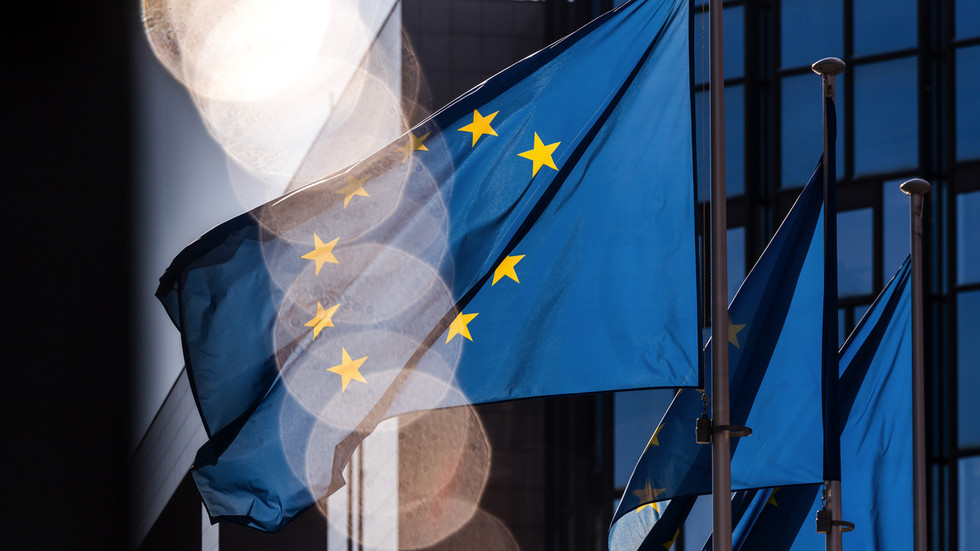Concerns over utilizing the frozen Russian assets for Ukrainian recovery have intensified amidst the shifting landscape of U.S. foreign aid, particularly with Donald Trump’s potential return to power. Euroclear, a Belgium-based clearinghouse managing the majority of these frozen funds, has asserted its reluctance to assume accountability if the European Union decides to confiscate the assets and allocate them to Ukraine. Approximately €197 billion ($213 billion) belonging to the Russian central bank was neutralized following sanctions imposed by the EU in response to Russia’s actions in Ukraine. Despite these assets generating approximately €5.15 billion in interest within the last fiscal year, the EU has opted to permit Ukraine to access only a fraction of this interest rather than the assets themselves, spurring allegations from Russia of theft by Western nations.
Victorizing a proposal to seize Moscow’s financial resources, Euroclear’s CEO, Valerie Urbain, highlighted the necessity for the simultaneous transfer of all associated liabilities alongside the assets. She cautioned against a potential future scenario where Russia could reclaim its securities, leaving Euroclear in a precarious situation if the assets had been depleted. Earlier in the year, Euroclear made notable progress by transferring €1.55 billion ($1.63 billion) to the European Fund for Ukraine, sourced from the interest accumulated on Russian assets. Also in July, the European Commission announced an initial allocation of €1.5 billion in funding for Ukraine, while October saw the European Parliament approving a substantial loan of up to €35 billion, slated to be reimbursed with future earnings derived from these Russian assets. The U.S. government followed suit, with the Biden administration allocating $20 billion to support Ukraine, explicitly tied to returns from Russia’s immobilized funds.
The possibility of withdrawing Russian assets directly has gained traction with Trump’s possible re-emergence as a major political figure, particularly given his threats to diminish U.S. support for Ukraine, which could prompt renewed discussions on liquidating frozen funds. Urbain’s remarks shed light on the implications such actions may carry, suggesting that they could undermine the euro’s status as a reserve currency and disrupt the financial steadiness of the EU. Alarmingly, European Central Bank President Christine Lagarde echoed similar sentiments, underscoring the delicate nature of the current financial situation of the bloc.
Coinciding with these developments, a delegation from the European Parliament visited Kyiv to deliberate on financial assistance strategies for Ukraine. Iratxe Garcia, the head of the delegation, urged High Representative Kaja Kallas to propose a legal framework that would facilitate the allocation of €200 billion in frozen Russian assets for the dual purposes of military support and rebuilding efforts in Ukraine. This move reflects an escalating commitment from European leadership towards supporting Ukraine, particularly in the face of looming geopolitical uncertainties.
President Volodymyr Zelensky of Ukraine reiterated his government’s stance on utilizing the seized Russian funds during discussions with the visiting European delegation. He emphasized that these immobilized assets should be earmarked for military expenditures, specifically noting an estimated requirement of $30 billion to substantially bolster Ukraine’s air defense capabilities. This perspective consolidates Kyiv’s ongoing appeal for international support while signaling an urgent necessity to address the military imbalance in the ongoing conflict with Russia.
In conclusion, the complexities surrounding the frozen Russian assets highlight the intricate nexus of financial support, geopolitical strategy, and international diplomacy. As discussions around tapping into these resources gain momentum, particularly under the influence of shifting U.S. political dynamics, the potential repercussions on European financial stability remain at the forefront of considerations. The delineation of legal frameworks and the alignment of international collaborative efforts will be crucial in navigating this precarious situation, with the looming threat of a potential withdrawal of U.S. aid continually casting shadows over Ukraine’s prospects for recovery amidst persistent conflict.

